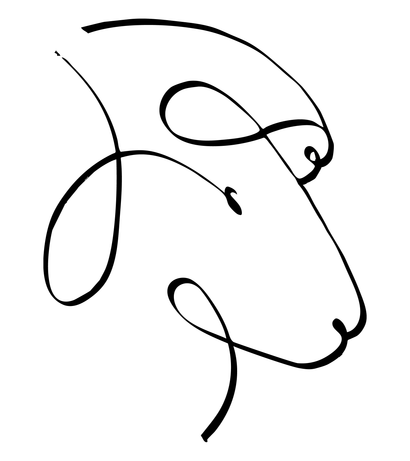Orders over $150 ship free
Orders over $150 ship free
Shop
Add description, images, menus and links to your mega menu
A column with no settings can be used as a spacer
Link to your collections, sales and even external links
Add up to five columns
Add description, images, menus and links to your mega menu
A column with no settings can be used as a spacer
Link to your collections, sales and even external links
Add up to five columns

Knitting and Sustainability
August 09, 2021 3 min read
I don’t like spiders. Except for my father, a Scotsman through and through, who swore that a spider saved Scotland, I can’t think of anyone who really likes them. But I like mosquitos even less than I like spiders, so it's okay if they build their webs on our porch. I even feel a little bad when a hungry sparrow snatches a hapless spider up for supper. Every little creature, even the creepy spider, has a place in the larger web that manages and protects the delicate balance of our environment.
Sustainability is a broad term we use to describe the goal of maintaining that balance. It is about finding ways to meet our own needs in a way that allows all other organisms, and future generations of organisms, in the complex web of life to meet their needs as well. We often think of sustainability as something outside of our control, but our every decision, no matter how small, has an impact.
As knitters, we can choose yarns that come from sustainable sources - fibers that are ethically produced and biodegradable. Recycled yarn, minimally impactfully dyed yarn, and yarns that are procured through fair trade.
First, look for natural fibers, like wool and cotton which are generally more sustainable than petroleum based yarns like acrylic. If you can, look for organic yarns, both wool and cotton, that are grown and processed without environmentally harmful pesticides. Recycled fibers are a good choice too.
As a retailer, I think about this a lot. I cannot procure exclusively organic or recycled fibers, but I can choose to do business with companies that I know share my concern for sustainability. Some of it has to do with the location of their production facilities, the way they treat their employees, and so forth.
I would point to Rowan Yarns which has a robust sustainability brand statement and policy that speaks to their concern for the ethical treatment of both people and animals throughout their supply chain.
Noro Yarns, another of my favorite brands, Noro, is scrupulous about their environmental impact, and has been for decades. All animal fibers used in Noro yarns are organic. The farms they come from are certified, and the fibers are stringently checked for authenticity at all stages of their journey from the animal to Japan. Mr. Noro believes “Eco certification should not be bought. It should be an integral part of every business.”
Manos del Uruguay, a cooperative of rural producers in South America, uses artisanal, small batch production methods for minimal water use, and no excess stock. Their products directly support and empower women and their families, ensuring economic stability and freedom.
Juniper Moon Santa Cruz-- New to our shelves is Juniper Moon Santa Cruz, a 100% organic merino worsted weight yarn. No pesticides or other harmful chemicals are used to treat the animals themselves, or the land on which they graze. There is no residual chemicals or chemical runoff into the water table.
Galler Yarns Inca Eco -- Cotton has previously been very damaging to the environment, but I am proud to carry Inca Eco, a beautiful Okeo-Tex Standard 100 Certified 100% Organic Cotton from Galler yarns. They use low-impact, environmentally-friendly dyes to help ensure sustainability.
There are many other examples of sustainable yarns, and if you have questions about a particular fiber, please feel free to ask me about it. I would also like to congratulate you, because just by being a knitter and looking to create a hand-knit wardrobe, you are choosing quality materials that last a long time and are rejecting the wasteful culture of fast fashion.
Brava, you beautiful knitter, you!
Warmly,
Ellen
If you liked this article, feel free to share

